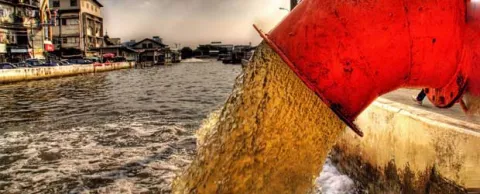
The Indian Institute of Technology (Banaras Hindu University) will play an important role in developing a biotechnology-based water treatment system for the purification of sewage water flowing into the rivers Ganga and Godavari under a joint project funded by India and the European Union.
The project is funded by the Indian ministry of science & technology, department of biotechnology, in collaboration with the European Union. The sponsored project, ‘SPRING-Strategic Planning for Water Resources and Implementation of Novel Biotechnical Treatment solutions and Good Practices (SPRING)’, is funded for a period of three years starting June 2020.
IIT (BHU) director Prof Pramod Kumar Jain said that the Institute will perform Geo spatial analysis with respect to land use-land coverage and water resources for identification of point and non-point sources of pollution of water bodies using integrated remote sensing for the Ganga near Varanasi. Further, field trials and testing of prototypes will be done at selected sites of the Godavari delta and also river Ganga. The developed system can be utilized by Municipality, NGOs or State Water Board.
He further informed that the specific goal of the project is to develop a prototype of the innovative low-cost advanced bio-oxidation treatment system for polluted water. For river Ganga, the target is to cover major sources of pollution from upstream of the Varanasi city to the downstream up to the confluence of river Gomati near Kaithy. The contributory catchments of river Assi and Varuna will also be part of the study.
Jain said the project ‘SPRING’ is unique because for the first time, it envisages to apply geo-spatial analysis with respect to land use, land cover and water resources for identification of point and non-point sources of pollution using integrated remote sensing in the Godavari delta and Ganga near Varanasi for monitoring, develop enzyme biotechnology-based advanced oxidation process (AOP) for treatment of organic pollutants, and microbial fuel cell (MFC) based novel bio-sensing systems for identification of new pollutant in the study area.
“It also seeks developing stakeholders’ decision-making and management framework with municipality and NGOs, State Water Board, etc., to apply the developed remediation system in the field for application,” he added.
In this project, Prof. Prabhat Kumar Singh, Dr Shishir Gaur and Dr Anurag Ohri from the department of civil engineering are the lead persons from IIT (BHU). Other Indian partners of the project include IIT Guwahati, IIT Kharagpur and other academic & research institutes.
Prof. Sanjukta Patra from IIT Guwahati is the Indian coordinator for the project. Foreign partners involved in the project are University of Tromsø, Norway (UIT), University of PECS (UP), Hungary, Northern Research Institute, Narvik AS (NORUT Narvik), Norway, INESC TEC, Portugal, ENVIROINVEST, Hungary.



